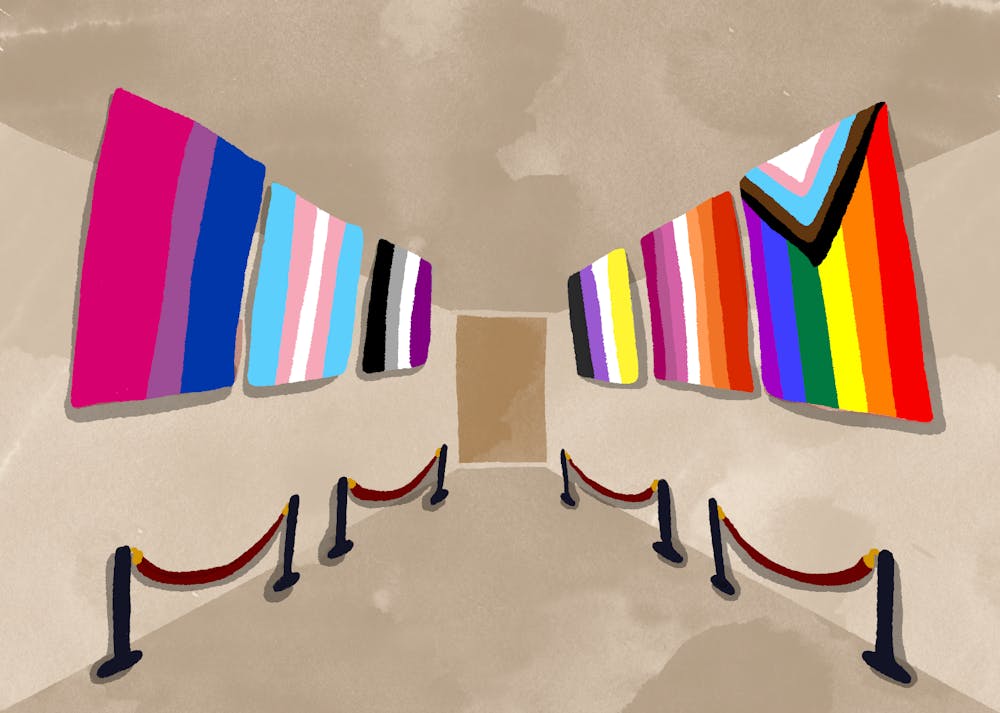When an iconic gay club was scheduled for demolition to make way for a newer building, an effort was launched to save the 307 Lounge.
Though the building didn’t escape its fate, its destruction helped build something in its stead.
Phoenix Pride and Marshall Shore, Hip Historian, responded to the reality of vanishing queer history by launching a project called the Arizona LGBTQ+ History Project with the intent to preserve the under-documented history of the state's LGBTQ community.
They found a natural partner with ASU's Bj Bud Archives, the largest LGBTQ+ collection in Arizona.
"We all said, 'Hey, wait a minute, our history's disappearing ... from there we really started looking at our history and saving and preserving it," Shore said.
The archives are named after Bj Hartley Bud, a lesbian activist who was integral to the gay rights movement in 1970s Phoenix. She created a local LGBTQ+ newsletter called Sundays Childe that covered a variety of news concerning the community.
She helped organize the first Pride parade in 1981, with the theme "We Are Here" in a march to the state capitol. She was vital in bringing awareness to the AIDS crisis during a time of federal neglect.
When Bud died in 1996, the Valley of the Sun Gay and Lesbian center honored her contributions to the community by naming the collection after her, eventually donating it to ASU in 2004.
"Luckily, one of the board members was an ASU employee and they donated the collection to ASU, and it kind of just sat in our backlog for a few years until there was someone to process it," said Nancy Godoy, associate archivist and lead of the Community-Driven Archives Initiative.
But the activism that came from the 307 Lounge's demolition and subsequent Arizona LGBTQ+ History Project brought enough funding to catalog, scan and preserve the contents of the donated boxes.
The archive now has permanent funding under ASU and continues to catalog and preserve LGBTQ+ and marginalized history. The funding also assisted in the creation of an online database, making the archive accessible to the public.
Godoy said she hopes that more queer stories will be unearthed by making the archive available to the public, who might be able to give more information on who or what might be in the photos.
"A lot of repositories at universities are just used for taking collections and materials from communities but not really engaging them afterwards and bringing this history to life, and we’ve been able to," Godoy said.
Collaborating with communities is one of the central focal points of the initiative. Besides the interactive archive, the ASU initiative also provides services to the community such as free workshops on archiving, scanning and conducting oral history interviews.
The initiative is also engaging with local K-12 schools with the philosophy that marginalized and LGBTQ+ history no longer belongs in a closet. The kids have an opportunity to be told about these important things that weren’t being discussed in previous generations.
Even though the project honors LGBTQ+ history and is named after a lesbian activist, it is still important to note that most of the identified donations are still white cisgender male representations of queerness, according to Godoy.
"It’s lacking, you know, the voices of the BIPOC community within the LGBTQ+ community and then also even the voices of trans community members. There’s a lot of work we still have ahead of us with the permanent funding we have from ASU, it just shows us that we want to continue that important work," she said.
It is imperative that the community learns from the legacy of homophobia and white supremacy that shaped the recollections of history, according to Godoy. The online archive suggests that the transparency and validation of the contributions of a community is the best defense against the whitewashing of history.
The goal of the archive and the outreach services is to ensure that the remembrance of history is equitable and to emphasize that LGBTQ+ and marginalized stories exist alongside straight stories.
"There is no greater goal, I think, than to be in a world where people in our community and people in every community can live their identity openly without fear and without the need for fear," said Jeremy Helfgot, spokesperson for Phoenix Pride.
The Arizona LGBTQ+ History Project strives to highlight marginalized stories and make them accessible to the general public. The point is to create connection within the community.
"There's stories within all the material and by making it accessible, we're allowing the researchers, students, community to kind of engage with that material and find those hidden stories and bring them to light and to show that there’s so much rich history within this community," Godoy said.
Edited by Andrea Ramirez, Sadie Buggle, Reagan Priest, Sophia Balasubramanian and Grace Copperthite.
Reach the reporter at kbartune@asu.edu and follow @BartunekKaren on Twitter.
Like The State Press on Facebook and follow @statepress on Twitter.




